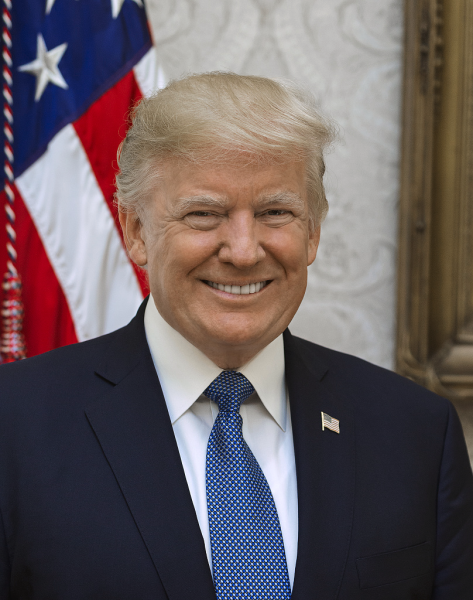
On Tuesday, Nov. 5, 2024, individuals across the country cast their ballots for the 47th presidential election. Vice President Kamala Harris ran against former President Donald Trump in a historically close election. As of Nov. 18, 2024, 152.5 million votes had been counted, though there are still ballots left uncounted. However, Trump was announced as the winner by the Associated Press on Wednesday, Nov. 6, 2024. The final tally for Electoral College votes read as 312 for Trump and 226 for Harris. In the months leading up to the election, battleground state polls never showed more than a 3% lead for either candidate. Despite this tight race, Trump held a slight lead in the final counts and claimed all seven battleground states.
In January, Trump will be officially sworn in as the 47th President of the United States. This will mark the start of his second term after a four-year hiatus. As seen by the results, many Americans are eager to see Trump return to the White House. Despite this, some of Trump’s ambitions and promises are worrying to Democrats and others who did not vote for him.
Since the start of his 2024 campaign, Trump has outlined several plans for his first day back in office. One of his main goals is to secure the southern border by launching mass deportations of illegal immigrants via an executive order. This executive order will likely face numerous logistical and legal challenges from immigration and human rights activists, according to the British Broadcasting Company (BBC).
On a smaller scale, according to Time Magazine, Trump has said that “within two seconds” of taking office he would fire Jack Smith, the special counsel who has been prosecuting two federal cases against him. Once in office, any remaining criminal cases Trump is facing will be delayed until after his term is up. This is due to a long-standing policy of the Justice Department, that sitting presidents cannot be prosecuted. Trump is expected to attempt to expunge his conviction on 34 counts in the New York hush-money case that ended in May of 2024.
In addition to trying to pardon himself, Trump will likely pardon numerous individuals convicted of storming the Capitol in 2021 following President Joe Biden’s victory. Out of the 1,500 people arrested in connection to the riot, more than 750 were sentenced for crimes of various degrees, according to the BBC. However, it is unclear if there are specific people or a number of individuals that Trump plans to pardon.
He has promised to increase production of fossil fuels and withdraw from the Paris Agreement, in an effort to lower energy costs while reversing climate change prevention policies. “With an executive order on Day one, [Trump] can roll back environmental protections, halt wind projects, [undo the] Biden administration’s [policies that] encourage the switch to electric cars, and abolish standards for companies to become more environmentally friendly,” writes Time Magazine.
Various other day-one promises are to work to end the war in Ukraine; impose tariffs on imported goods, especially those from China and Mexico; undo changes to Title X that were made by the Biden administration; and roll back protections for transgender students. However, numerous activist and Democratic groups are preparing to challenge many of these proposed changes in hopes of delaying or preventing their implementation, according to the BBC.
During his 2016 campaign, Trump started his slogan Make America Great Again (MAGA). Throughout his first campaign, he ran with Mike Pence who previously served as the 50th governor of Indiana. Similarly to the most recent election, Trump ran on promises of stronger immigration laws, shifting foreign policy in the Middle East, and lowering taxes. Despite running alongside President-elect Trump in 2020, Pence has publicly stated that he does not want Trump to pardon those who participated in the attack on the United States capitol on Jan. 6, 2021.
During his first term as president, Trump followed through on several of his promises, notably taxes. In some states, taxes were lowered on corporations from 35% to 21%. Though, according to the BBC, “[for] some higher earners in urbanized, mostly Democratic states, taxes went up due to a cap on state and local property.” Some of his promises didn’t come to fruition entirely; for years Trump talked of ending deployment to the Middle East. With that intention, in 2016, he sent 3,000 more troops to Afghanistan. Yet this didn’t last for long, and in December of 2018, he ordered a withdrawal of all troops from the region, though as of 2020 around 500 still remained.
Entering his third campaign, Trump stuck with his original MAGA slogan and kept similar promises in terms of lowering taxes and his border policies. However, he added new ideas about reforming the public education system, as well as an added emphasis on leaving abortion up to individual states to his campaign. After his loss to Joe Biden in 2020, Trump announced in the summer of 2024 that he would be running with Vice President-elect JD Vance.
Vance served in the United States Marine Corps in the Iraq War, went on to attend Ohio State University as well as Yale Law School, and is currently the junior U.S. Senator from Ohio. Prior to being Trump’s running mate, Vance publicly criticized Trump, and in 2016 and 2017 liked several harsh comments about him on X. Vance has since deleted these comments and removed the likes prior to announcing that he would be running with Trump. Despite their rocky past, Vance and Trump align on many issues such as abortion rights, LGBTQ+ rights, immigration, and foreign policy.
Trump’s return to office has been an emotional election for many around the country. While some are ecstatic about him claiming victory, others fear for their lives or the lives of their loved ones that could be affected by Trump’s policies or first-day promises.
Evan Ruegg graduated from Sherwood High School this June and is now a freshman at the University of Vermont. This election is the first one Ruegg was able to vote in, and he cast his vote for Harris. Ruegg expands on his decision, stating, “I voted for all the women and girls in my life. I voted because I might not be a woman but I do have a uterus.” He shared that he will keep a close eye on Trump’s policies, particularly those regarding transgender rights, public education, and anything surrounding the American Disabilities Act. Since Trump’s victory, “I am scared, I feel devastated, [and] I feel a little hopeless,” says Ruegg.
Many seniors at Franklin were able to cast their votes for the first time this November, including Josh Fajardo and Owen Phillips. Fajardo and Phillips shared that they both voted for Harris in the election. Phillips expands on his reasoning stating, “I voted for Kamala as she had better policies around healthcare and general civilian protection and human rights protection.” Fajardo also explains, “I feel shocked that so many people would rather have a convicted felon in office rather than a female.”
Lindsay Benstead is a politics and global studies professor and director of the Middle East Studies Center at Portland State University (PSU). Benstead shared her insights about the Trump administration’s relationship with Middle Eastern countries. “The Trump administration brokered the Abraham Accords in 2020 between Israel, the [United Arab Emirates] UAE, Bahrain, Sudan, and Morocco,” Benstead explains.
The Abraham Accords are a series of agreements in an effort to normalize relations between Middle Eastern countries. Benstead believes that “given this, it is likely that Trump’s second administration will focus on trying to expand the Abraham Accords to include more countries — possibly Saudi Arabia — in an effort to broker peace in the region.” If built upon, this landmark agreement could in theory strengthen peace and diplomatic relations between Middle Eastern countries.
Professor at PSU and Western Political Science Association Executive Director Richard Clucas shared his beliefs about the biggest similarities and differences from Trump’s first term to his second. “Trump will find more support in Congress than before because both chambers now have a majority of Republicans. That will help him get more laws enacted that he prefers,” Clucas explains. This, along with the Supreme Court holding a conservative majority, will certainly help him pass legislation throughout his term. Clucas continues, “Lastly, he wants to appoint individuals to lead the government who are personally committed to him. During his last time in office, he brought in some professionals who opposed his proposals, which may have stifled his agenda.”
Clucas believes that while creating a new team that aligns fully with Trump’s views may be helpful, there is a risk. This is because “some of the people he wants to appoint have little experience in government, so they may not be all that capable in helping him,” he explains. An example of this is Peter Hegseth, Trump’s pick for Secretary of Defense.
The Secretary of Defense is an incredibly important role in the government as they oversee the Department of Defense, which includes the entire US Armed Forces, and act as the main defense policymaker and advisor. Hegseth’s prior career experience includes being an Army combat veteran who served in Afghanistan, Iraq, and Guantanamo Bay. Since his service, Hegseth has been a Fox News personality, even co-hosting “Fox and Friends Weekends.” Along with not being as politically qualified as others who have held the position, Hegseth is currently fighting sexual assault allegations.
President-elect Donald Trump will be sworn into office on Jan. 20, 2025, and will take office immediately after. We can expect several things from his term, such as firing those who took legal action against him, pardoning himself, withdrawing from the Paris Agreement, imposing tariffs, and much more. It’s unknown how many of these policies will be fulfilled throughout his time in office, or how long it will take for him to put his ideas into practice. However, Americans can expect to see Trump and his cabinet attempt to execute as many of his ideas as possible.



































